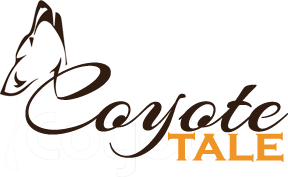In an era marked by constant connectivity, rapid information flow, and relentless demands on our time and attention, many people experience a profound sense of mental overload. This phenomenon, which we will refer to as Simbramento, encapsulates the cognitive and emotional burden that modern life imposes on the mind.
This article explores the concept of Simbramento, its causes, effects, and strategies to manage the mental overload that so many face today.
What Is Simbramento?
Simbramento can be described as the state of being overwhelmed by excessive mental stimuli, responsibilities, and emotional strain. It is not merely stress but a deeper, more persistent feeling of cognitive saturation where the mind struggles to process, prioritize, and respond effectively.
Unlike traditional stress, which often relates to specific events, Simbramento reflects a continuous, pervasive mental pressure stemming from the demands of modern living.
Causes of Simbramento in Modern Life
Several factors contribute to this state of mental overload:
1. Information Overload
With smartphones, social media, news updates, and constant notifications, people are bombarded with vast amounts of information daily. The brain’s natural filters struggle to keep up, leading to fatigue.
2. Multitasking Culture
Modern work and social environments often require juggling multiple tasks simultaneously, which can impair focus and increase mental exhaustion.
3. High Expectations
Societal and personal pressures to perform, achieve, and maintain a certain lifestyle exacerbate feelings of being overwhelmed.
4. Lack of Downtime
The blurring of boundaries between work and personal life, especially with remote work, reduces opportunities for mental rest and recovery.
The Effects of Simbramento
Simbramento can manifest in various psychological, emotional, and physical symptoms:
-
Difficulty concentrating or making decisions
-
Chronic fatigue and burnout
-
Anxiety and mood fluctuations
-
Sleep disturbances
-
Reduced creativity and motivation
Over time, unmanaged mental overload can impact overall well-being and productivity.
Strategies to Manage Simbramento
Addressing Simbramento requires intentional efforts to balance mental demands with restorative practices:
1. Digital Detox
Setting boundaries on screen time and limiting exposure to unnecessary information can help the brain reset.
2. Mindfulness and Meditation
Practices that encourage present-moment awareness reduce cognitive clutter and promote mental clarity.
3. Prioritization and Time Management
Focusing on essential tasks and learning to say no reduces overload and increases efficiency.
4. Physical Activity
Exercise supports mental health by reducing stress hormones and boosting mood-enhancing chemicals.
5. Seeking Support
Talking to friends, family, or professionals can provide perspective and coping strategies.
Embracing a Balanced Mental Lifestyle
Simbramento is a natural response to the complexities of modern life, but it doesn’t have to dominate our experience. By recognizing the signs and adopting healthy habits, individuals can regain control over their mental space and cultivate resilience.
Conclusion
Simbramento highlights a critical challenge of the 21st century — managing the mental overload that accompanies a digitally connected, fast-moving world. Understanding this phenomenon is the first step toward reclaiming mental balance, fostering well-being, and living more intentionally amid the noise.







